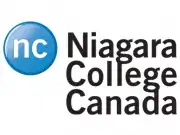Engineering programs in Canada for international students
- Advantages of Engineering Education in Canada
- Formats and Levels of Engineering Programs in Canada
- Top Engineering Universities in Canada
- Additional Recommended Engineering Schools in Canada
- How to Apply for Engineering Programs in Canada
- Tuition Fees for Engineering Programs in Canada
- Scholarships and Grants for Engineering Programs in Canada
- Language of Instruction and Preparation for Engineering Programs in Canada
- Career Prospects After Engineering Education in Canada
- Is It Worth Studying Engineering Programs in Canada
- Frequently Asked Questions

Diploma - Welding Technician
Niagara College InternationalDo you want to make a significant contribution to the structural development of an industry that is facing a skilled labor shortage?
You work closely with engineers as a Welding Technician, are skilled at determining the cutting, fitting, and welding sequence, and have a thorough understanding…

Diploma - Winery and Viticulture Technician
Niagara College InternationalAre you a wine connoisseur who wants to take your passion for reds and whites to the next level?
You are a key member of the winery management team as a Winery and Viticulture Technician graduate, with the expertise required to develop, plant, and maintain a commercial vineyard; manage daily…

Certificate - Construction Techniques
George Brown College of Applied Arts and TechnologyThe Construction Techniques program accepts students three times a year and focuses on the most in-demand construction specializations.
If a job in construction interests you, this curriculum is intended to provide you options. You can try your hand at several different professions before…

Certificate - Electrical Techniques
George Brown College of Applied Arts and TechnologyUnder the direction of an expert, students in the Electrical Techniques program learn how to set up, test, maintain, analyze, and troubleshoot various electrical circuits, tools, and systems. As part of the curriculum, students will study how to implement workplace safety practices and implement the…

Diploma - Construction Engineering Technician
George Brown College of Applied Arts and TechnologyThe Construction Engineering Technician program investigates the properties of various building types.
The program emphasizes:
- construction document interpretation
- building engineering and safety on-site
- project expenses (labour, materials…

Diploma - Architectural Technician
George Brown College of Applied Arts and TechnologyYou will gain a thorough understanding of architectural drawing and technical design skills as well as an understanding of sustainable building design and construction materials based on current green principles while learning in state-of-the-art architectural studios with the most cutting-edge tools…

Advanced Diploma - Building Renovation Technology
George Brown College of Applied Arts and TechnologyThis course will provide you with a comprehensive grasp of the trades associated with new construction and building rehabilitation, from both an applied and a managerial perspective, covering carpentry techniques and new materials applications.
Students learn by doing in fully stocked labs…

Diploma - Heating, Refrigeration and Air Conditioning Technician
George Brown College of Applied Arts and TechnologyThe true cost of energy is becoming more widely recognized due to a combination of issues, including rising fuel prices, poor indoor air quality, and climate change. Designing, constructing, and maintaining environmentally friendly buildings is an urgent priority.
Program participants in…

Advanced Diploma - Architectural Technology
George Brown College of Applied Arts and TechnologyLearning in interactive studios with cutting-edge equipment and software, you will build a solid foundation of diverse and practical skills needed to work on projects ranging from new construction to alterations and renovations in the architectural, engineering, and construction industry's residential,…

Advanced Diploma - Interior Design
George Brown College of Applied Arts and TechnologyYou can get qualified as an Interior Design Technologist by finishing a three-year advanced diploma program in the field. Contributing to the technical design of building interiors through the design development of plans, elevations, renderings, and 3D models, you will be an invaluable component of…
Advantages of Engineering Education in Canada
Canada remains one of the leading countries for higher engineering education. Studying here combines academic theory and practice, which is especially important for technical specialties. Here are the key advantages:
- Internationally recognized diplomas that meet the standards of the USA, UK, and Europe.
- High positions of Canadian universities in world rankings (QS, THE, ARWU).
- Modern laboratories and research centers at universities.
- Strong partnerships between universities and industry.
- Opportunity to participate in paid internships (co-op programs).
- Programs in English and French.
- Legal employment opportunity after graduation through the Post-Graduation Work Permit (PGWP).
- Safe, tolerant, and multicultural environment.
- Relatively affordable tuition fees compared to the USA.
Formats and Levels of Engineering Programs in Canada
Canada offers a wide range of programs for students with different levels of preparation:
- Bachelor's Degree (Bachelor of Engineering — B.Eng or Bachelor of Applied Science — BASc) — classic four-year engineering education.
- Master's Degree (Master of Engineering — M.Eng or Master of Applied Science — MASc) — duration 1-2 years, allows deepening knowledge and participating in research.
- PhD — program for future scientists and researchers, duration 3-5 years.
- Diploma and Certificate Programs — offered by colleges, duration from 1 to 3 years, with a focus on practical skills.
- Cooperative Programs (Co-op) — combining studies with paid internships.
- Preparatory Programs (Foundation, Pathway) — for those who need to improve their academic level or language skills.
Top Engineering Universities in Canada
| University | Program | Tuition fee for international students (per year) | World ranking | Comment |
|---|---|---|---|---|
| University of Toronto | Bachelor of Applied Science (Engineering) | from 62,000 CAD | Top 30 | Leader in the number of scientific publications and research, the strongest engineering school in the country. |
| University of British Columbia (UBC) | Bachelor of Applied Science (Engineering) | from 58,000 CAD | Top 40 | Strong industry connections, the Vancouver campus is renowned for quality of life and environmental friendliness. |
| McGill University | Bachelor of Engineering | from 54,000 CAD | Top 50 | Anglo-French academic environment, developed international student network. |
| University of Waterloo | Bachelor of Applied Science (Engineering) | from 55,000 CAD | Top 100 | Canadian leader in technical specialties, known for the largest co-op program. |
| McMaster University | Bachelor of Engineering | from 49,000 CAD | Top 150 | Strong programs in biomedical engineering, mechanical engineering, and IT sectors. |
Additional Recommended Engineering Schools in Canada
| University | Program | Tuition fee for international students (per year) | World ranking | Comment |
|---|---|---|---|---|
| Humber College | Diploma in Engineering Technology | from 22,000 CAD | - | Focus on practical learning, quick entry into the job market. |
| Centennial College | Advanced Diploma in Engineering Technology | from 21,000 CAD | - | High-tech laboratories and modern workshops. |
| George Brown College | Mechanical Engineering Technology | from 23,000 CAD | - | Modern equipment, emphasis on projects and internships. |
How to Apply for Engineering Programs in Canada
Step-by-step process:
- Choose an educational institution and program.
-
Prepare the required documents:
- High school diploma or bachelor's/master's degree.
- Official transcripts.
- Language proficiency certificates (IELTS, TOEFL, Duolingo).
- Resume.
- Statement of purpose.
- Letters of recommendation (usually 2-3).
- Portfolio (for certain engineering fields).
- Submit an online application (directly to the university or through the OUAC platform).
- Complete an interview (if required).
- Receive an admission decision.
Additional exams such as SAT, ACT, GRE may be required, especially for prestigious universities.
Tuition Fees for Engineering Programs in Canada
Financial aspects:
- Bachelor's Degree: from 40,000 to 65,000 CAD per year.
- Master's Degree: from 25,000 to 45,000 CAD per year.
- PhD: from 10,000 to 25,000 CAD per year (often scholarships cover expenses).
- Colleges: from 18,000 to 25,000 CAD per year.
Estimated monthly expenses:
- Accommodation: from 900 to 1,800 CAD.
- Food: about 400-600 CAD.
- Transportation: from 100 CAD.
- Study materials and insurance: about 1,500 CAD per year.
Scholarships and Grants for Engineering Programs in Canada
Canada actively supports international students through grants and scholarships:
- Lester B. Pearson International Scholarship — prestigious scholarship for talented undergraduates.
- Vanier Canada Graduate Scholarships — funding for graduate students with leadership potential.
- Ontario Graduate Scholarship — support for master's and PhD students.
- Canada Graduate Scholarships — Master's Program — assistance at the master's level.
Selection criteria:
- Academic achievements.
- Leadership and research abilities.
- Involvement in volunteer or social projects.
Application deadlines: from December to March, individually for each program.
Language of Instruction and Preparation for Engineering Programs in Canada
Language requirements:
- IELTS: minimum 6.5 (no less than 6.0 in each component).
- TOEFL: minimum 86 points (some universities require 90+).
- Duolingo: from 115 points.
For those who do not meet the requirements, Pathway programs are recommended, combining language study and academic disciplines.
Some programs are available in French, especially in the province of Quebec.
Career Prospects After Engineering Education in Canada
Engineering graduates are in demand worldwide and especially in Canada:
Popular fields:
- Civil and industrial construction.
- Electrical engineering and power engineering.
- Mechanical engineering.
- Automation and robotics.
- Programming and IT engineering.
- Biomedical engineering.
- Environmental engineering.
Major employers:
- Bombardier (aerospace).
- SNC-Lavalin (construction and infrastructure).
- Siemens Canada (technology and automation).
- General Motors (mechanical engineering).
- IBM Canada (IT solutions).
- Hydro-Québec (power engineering).
- Hatch Ltd. (engineering consulting).
Internships through co-op programs significantly increase chances of employment immediately after graduation.
Is It Worth Studying Engineering Programs in Canada
Studying engineering in Canada is an investment in the future.
Advantages:
- High quality of education.
- Opportunities for practical experience and employment.
- Competitive tuition fees compared to the USA.
- Simple procedure for obtaining a work visa after studies.
- Favorable immigration policy.
Comparison:
- USA — more expensive education and more complex visa policy.
- Europe — some programs are cheaper, but paid internships and work visas are less common.
Canada optimally combines accessibility, quality, and prospects.
Frequently Asked Questions
1. Which engineering fields are most in demand in Canada?
Civil engineering, IT engineering, mechanical engineering, power engineering, biomedical engineering.
2. Can I stay to work in Canada after completing an engineering program?
Yes, through the Post-Graduation Work Permit, graduates can work for up to 3 years.
3. What is the minimum English level required for admission to engineering programs in Canada?
Usually IELTS 6.5 or TOEFL 86+ is required, higher for some programs.
4. What scholarships are available for international students in engineering programs?
University and government scholarships, including Lester B. Pearson and Vanier Canada.
5. Which Canadian universities lead in engineering specialties?
University of Toronto, UBC, McGill, Waterloo, McMaster.
6. Is it difficult to get admitted to engineering programs in Canada?
The competition is high, requiring a high GPA, IELTS/TOEFL certificates, and motivational materials.
7. Which companies in Canada hire engineering graduates?
Bombardier, SNC-Lavalin, Siemens Canada, General Motors, IBM Canada.
8. Is there an opportunity to prepare for admission to engineering programs in Canada in advance?
Yes, Pathway and Foundation programs are available.
9. How much does it cost to study engineering in Canada?
From 18,000 to 65,000 CAD per year depending on the program level and institution.
10. Can I study engineering in Canada in French?
Yes, some universities in Quebec offer French-language programs.